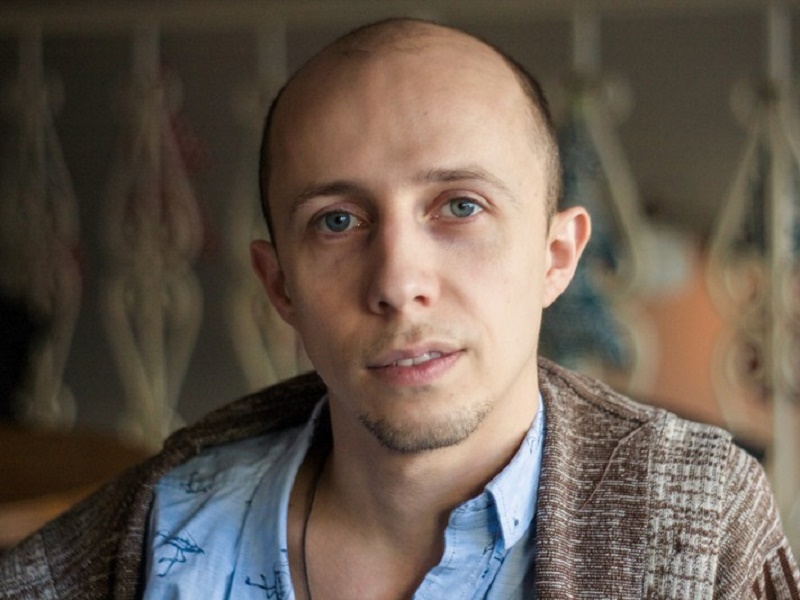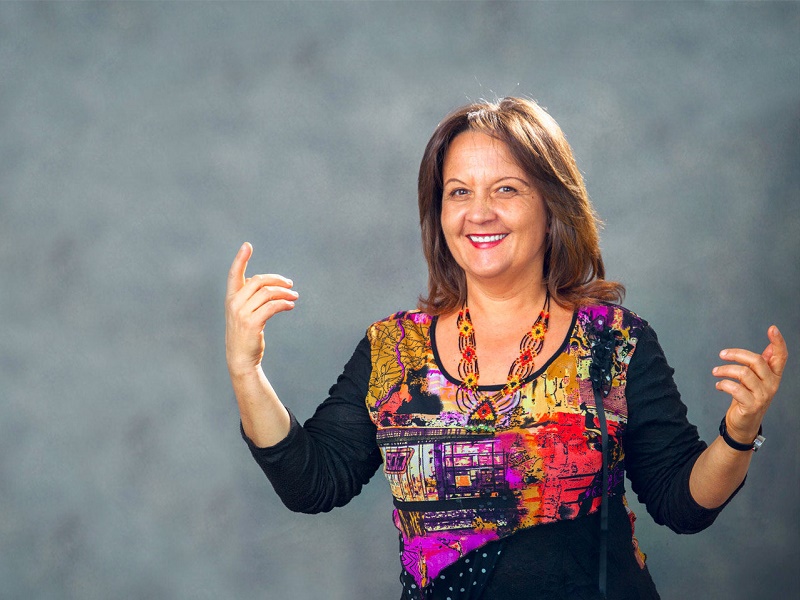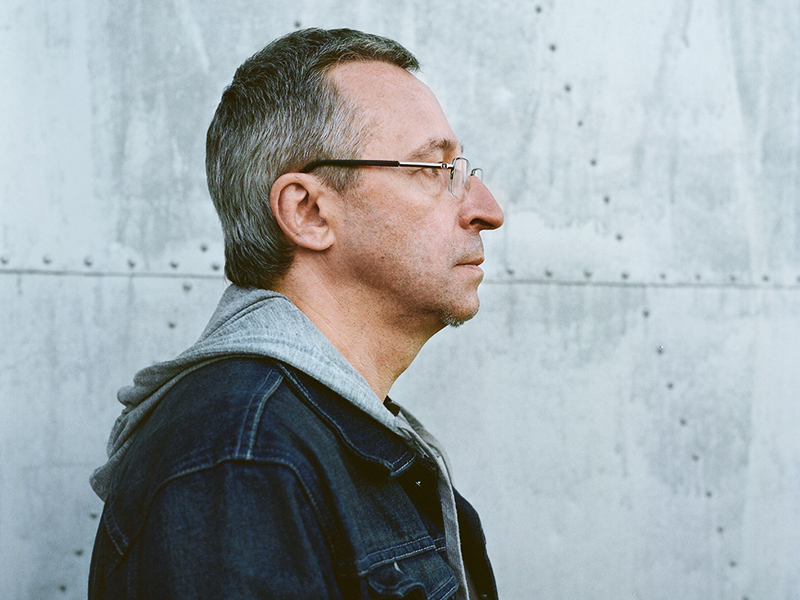
International Cooperation as an Advantage and a Challenge: Experience of a Ukrainian-Lithuanian Performance
On De-Sovietization
It is a comprehensive and intensive process of freeing yourself from the Soviet past. Despite the fact that the Soviet Union de jure ceased to exist in 1991, de facto it continues to exist even to this day. Our project is an attempt to start with ourselves, to spot and trace Soviet mentality in everyday life, in relationships and in our very bodies. Where can our inner tyrant be found? In which ways does it suppress all of us? What prevents us from enjoying the diversity of the world? Realizing it is the first step towards getting rid of it. #LetMePleaseYou is a journey that will allow the viewer to see, experience, rethink and, perhaps, let go.
Audience
The Royenko Agency helps us stage a large-scale publicity campaign, as well as work with the media. This is very interesting and valuable experience of collaboration between the artistic project and a marketing agency so that the project could reach a wider audience.
Together we have pinpointed our target audience: people aged 20 to 55 who are concerned with transformation processes, interested in cultural projects and create their own projects, as well as opinion leaders. We came up with a figurative name for such an audience – Homo Curious. However, this definition applies only to the publicity campaign. The project as a whole is aimed at a broader audience. The first project took place in the Carpathian Mountains, in the small village of Pidhorodtsy, where my mother came from. The audience of pilot presentations was not used to such projects; the youngest and oldest spectators were 8 and 65 years old respectively. However, the feedback from these people gave us was accurate and substantial. They got a comprehensive idea of what is behind the project and what we are working on, even though we had just dipped our toes into it at the time. This incident made us believe that our audience is very diverse. After all, performing art is so important precisely because, when communicated through the body in space and time, even complex existential and philosophical ideas can be clear to very different people regardless of their social and intellectual experience, as well as cultural practices experienced by the audience.

International Cooperation
In a sense, it complicates the logistics of the project. Though it is a social project rather than a commercial one, it requires at least some payment to participants, so the economic factor is sobering and brings us back down to earth. We also plan to present our project internationally, so we had to get a legal partner, because you need to comply with all the intricacies related to copyright and its clearing, protection of the project name as a trade mark; all the legal requirements of the countries that the project participants came from have to be met. The Lesya Zadesenets Law Office helps us with this; we could not have managed without her.
There are numerous intricacies and complexities, but on the other hand, international cooperation is a great challenge that gets a new angle and makes us look at the bigger picture. It is, first of all, a terrific experience of exchange of cultural codes and practices while working with foreign colleagues. And also a very valuable opportunity to “clarify vocabulary.” One of the “legacies” of the Soviet past is that our vocabulary is a complete mess: the meanings of words were distorted for the sake of ideological practices. The international aspect of teamwork is that it helps to clarify these meanings and discern contradictions in terms. In order to take the stage, we need to come to some understanding, so we practice clarity, which is lacking today.
Personal Stories
During the staging, we pay attention not only to the body and movements, but also to research and philosophical works: for example, by analysing Václav Havel's essay The Power of the Powerless, or making out the lecture Ornament and Crime by Adolf Loos. Personal stories of participants are vital to our project. During casting, we invited performers aged 20 to 50 as our project needs a selection of different generations, experience of life in the Soviet Union and lack thereof. At present, our participants include people of two decades: those who were born in the 1980s and 1990s. While working on the performance, we had a lot of discussions and worked with choreographic material related to the moments of childhood or family histories, and interacted with the paraphernalia associated with the Soviet era.

Inclusivity
We encourage the audience to give us feedback at each stage of the project. We have already had three open shows, and the audience joined actively the discussion about the progress of the work. Some observations from the audience have even made us change the material, the length of some pieces, adjust the composition. That is, even at the development stage, the project is influenced not only by the personal experiences of the performers and our collaborative work, practice, ideas, observations and artistic interpretation, but also by the feedback from the audience and its personal experiences.
Funding
When it comes to funding, we have had our ups and downs. In terms of what has worked out, we have received some funding from Lithuania, namely from of the Lithuanian Institute of Culture, the Ministry of Culture of Lithuania, the Lithuanian Embassy in Ukraine, to cover the transfer and accommodation of our Lithuanian playwright. The funding allowed us to implement the first phase of the staging process, when the physical presence of the playwright, along with the director-choreographer and the artistic team, is crucial. Ukrainian support was provided by our friends. Ivan Kozlenko, director of the Dovzhenko Center, helped us with the premises. The Department of Culture under the District State Administration of the Town of Skole in the Lviv Region (Roman Lesyshyn), together with Vargas Oryslavoy, head of the Village Council of Podhorodtsy located in the Skole District of the Lviv Region, also helped us with the staging process in the Carpathians: they allotted us the Podhorodtsy Culture Centre to work on the project. Overplay Production help us with promotional videos, Dmytro Kostiuminskyi (DollMen Theatre) supported us during the summer residence in Kyiv and shared his rather expensive screen for rear projection free of charge, etc. In Ukraine, support depends on interest in the project, and people are really responsive and willing to help with whatever they can. However, to grow further, we need funding.
Some things, however, did not work out. I think it will be insightful for our readers if we discuss cases. We have conducted our first crowdfunding campaign this July, and unfortunately, it failed: we collected only $145 out of the required $30,000. We used Indiegogo, and our mistake was to focus on the information aspect, as well as the cultural and artistic value of the project. But the standards of crowdfunding in Ukraine are still underdeveloped, public response being lukewarm; people are more responsive to social projects. We have also faced a great deal of distrust from the audience as a show that requires a large amount of money, even though the budget of the project, taking account of the context and enthusiasm of the participants, is seven-eight times less than comparable projects in France, for example. Another factor is that we live in the world that is overwhelmed by excessive information, and unfortunately, the audience does not always have the time and attention span to grasp the concept.
Currently, we are planning another fundraising campaign, but this time it is based on the experience that we have gained. And this time we are not fooling ourselves that it will cover all our expenses. We decided to treat our fundraising campaign as a promotional one and as a tool of attracting the necessary sum of money for our preparations at least until the next rehearsal period and Ukrainian opening. Also, we are now looking for the co-producer among large international festivals and dance centres, who could assist us with funding in exchange for the opening rights.




